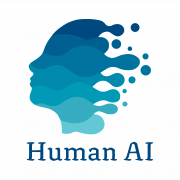Personality matters and makes an impact
The influence of personality on human development
“Personality matters.”
Milos Kankaras in the OECD document Relevance and assessment of personality characteristics.
The person is more than his or her personality. Personality characteristics, indeed, shape human behavior and influence different and relevant areas of life. Personality matters, and because it matters, it has an impact.
Our personality characteristics impact both the direct effects on our life achievements and through indirect effects on other personal factors such as the development of non-cognitive abilities, interpersonal competencies, academic performance, family well-being, performance in the work environment, social inclusion, and the general well-being of the individual and society as a whole.
In fact, there is evidence in psychological and empirical research on its importance and substantial influence in various areas such as education, sports, success, status, productivity, job, family and life satisfaction, health itself, etc.
Measuring personality and predicting your success
Performance tests generally overlook, or do not adequately assess, the soft skills (personality traits, competencies, goals, motivations, preferences) that are so highly valued today in the job market, in schools and in many other sectors. Assessing soft skills makes it possible to predict a person’s achievement and success.
Studies therefore underline the need to incorporate more routinely the measurement of personality in quality of life surveys, psychology tests, vocational orientation, personnel selection, etc. in order to develop one’s own human talent. Somehow assessing our personality helps us to predict the impact and success in our personal fulfillment.
Personality and its impact on education
In relation to education and training, personality development matters a lot. For example, different studies have shown that the “Responsibility” factor has a high impact on educational performance.
Among the eight key competencies listed in the European Framework for Lifelong Learning, Kankaras shows that at least four refer mainly to personality traits and “non-cognitive” skills, or so-called soft skills:
- Learning to learn: includes self-discipline, perseverance and motivation.
- Social and civic competencies : involves communication skills, tolerance, empathy and knowing how to cope with stress.
- Sense of initiative and leadership. Entrepreneurship: in relation to the ability to plan and manage projects, leadership skills, innovation and risk-taking.
- Cultural expression and awareness. Creativity: Key elements include appreciation and understanding of diverse cultural forms of expression of ideas, experiences and emotions.
It matters how we are and how we are formed; so getting to know, evaluate and adequately enhance the personality in human growth and development is a challenge. A challenge in which artificial intelligence can be a great means and our best ally. Technology at the service of human development.
Our personality has a certain power in decision making, because we make what we are and we make ourselves by being. Let’s learn to know ourselves better to decide better and be what we really want to be.
If you work in a context of evaluation, assessment and development of people, ask for our free demo:
👉🏼 tu-demo.humanaitech.com





